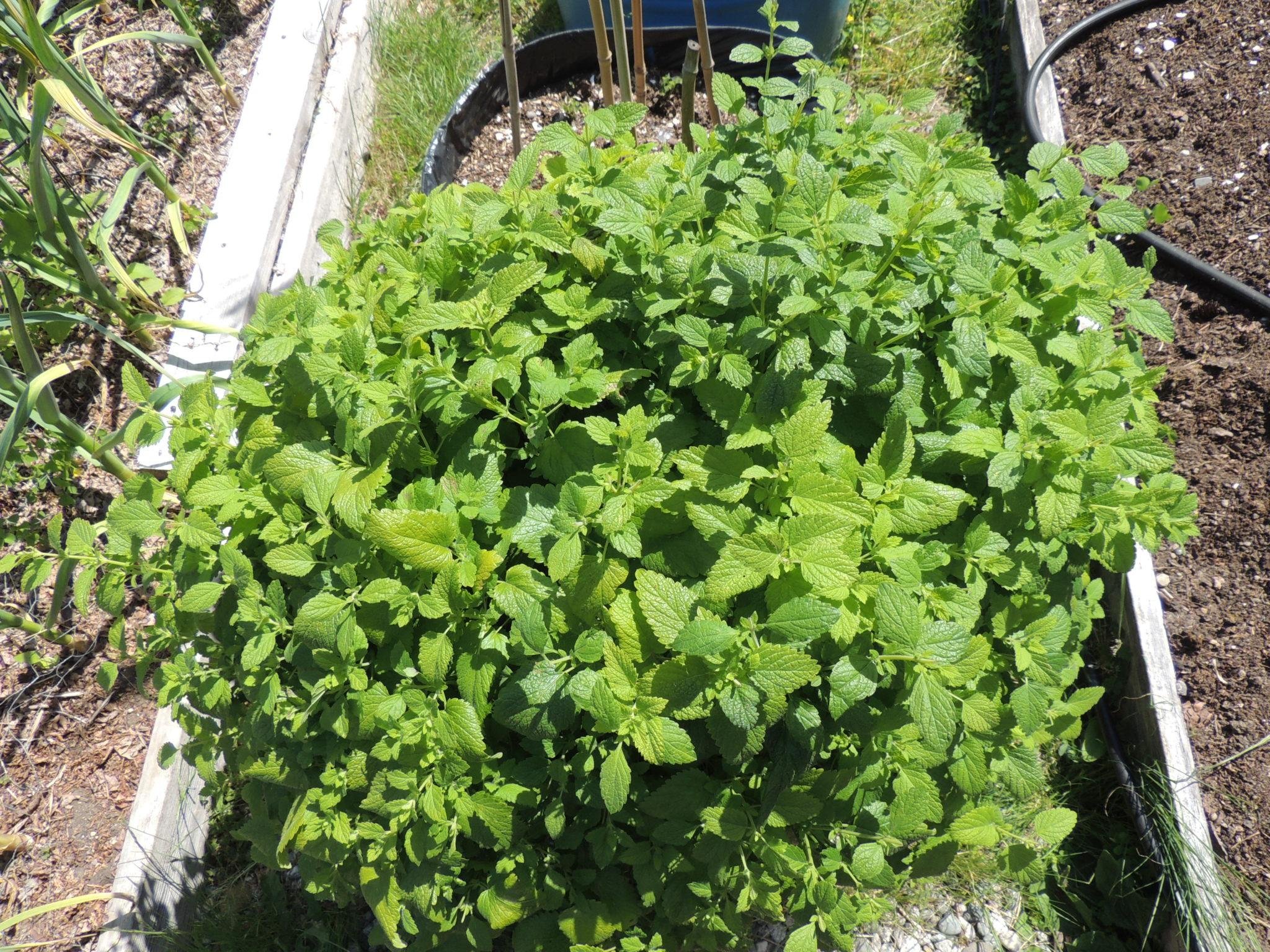Tinctures 101: How to Make a Tincture
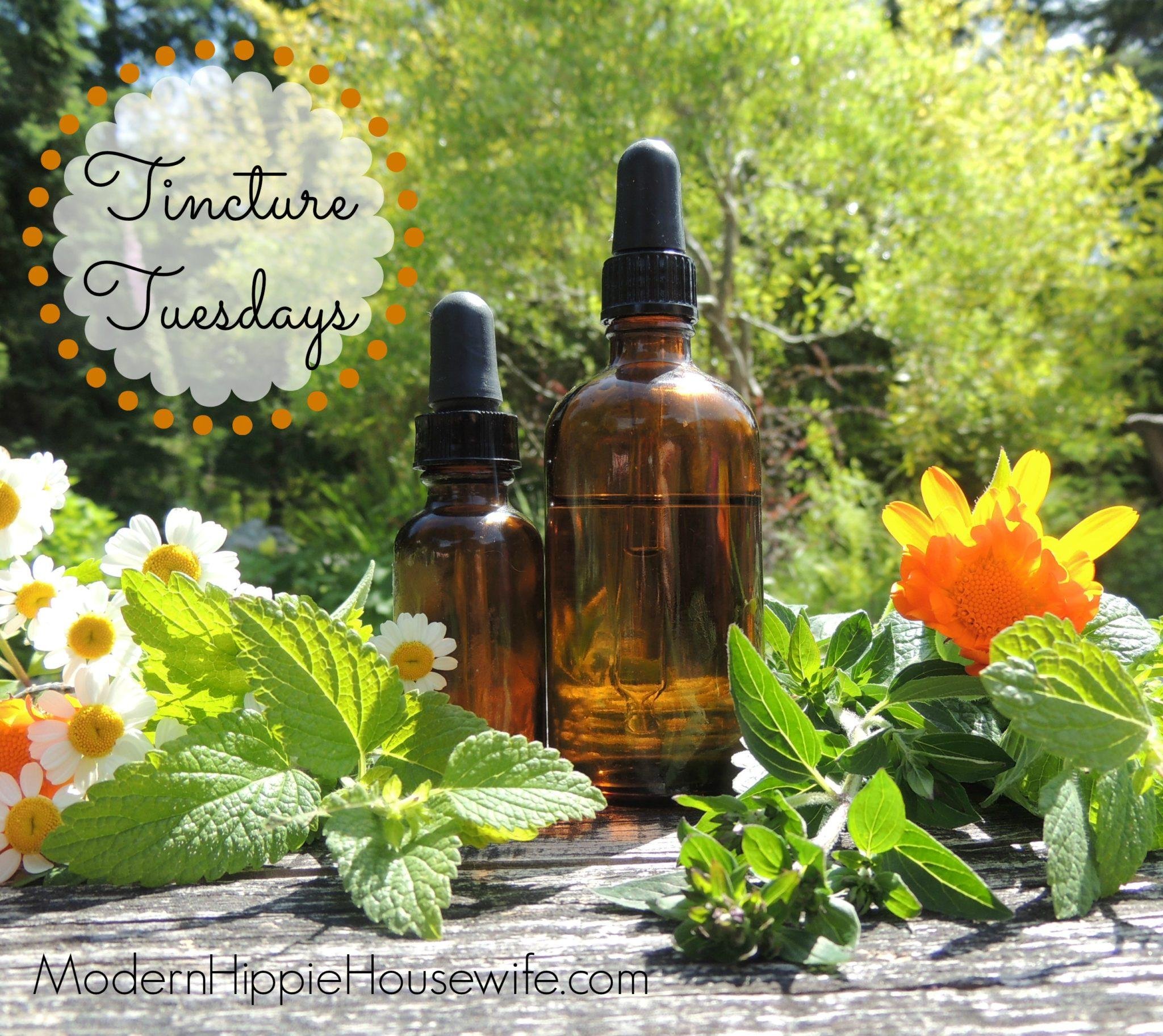
*This information is based on my own research and reading--I always encourage you to do your own research too. Consult your doctor if you are considering changing, or going off, any medication (read my full disclaimer/disclosure here.)*
Summer is here, and my garden is in full swing! This year I’ve been transforming my plants into herbal remedies, in the form of a tincture. Pre-1900’s, before the pharmaceutical company’s gained power and popularity, plant-based medicine was the primary practice, and because I'm a die-hard DIY-er, in my home, I'm bringing it back!In the spirit of summer, my love of nature, and the abundance of plants around this time of year, I’ve decided to share my new hobby (as always) and have created “Tincture Tuesdays!” Each Tuesday, for the remainder of the summer, I’ll be show-casing a local plant or herb, discussing its medicinal properties, and showing you how to incorporate it into your medicine cabinet! By the end of the summer, my goal is to have a medicine cabinet full of useful, herbal remedies that have the ability to treat minor ailments, naturally. I hope you join along!
Welcome to Week One: Tinctures 101
What is a Tincture?
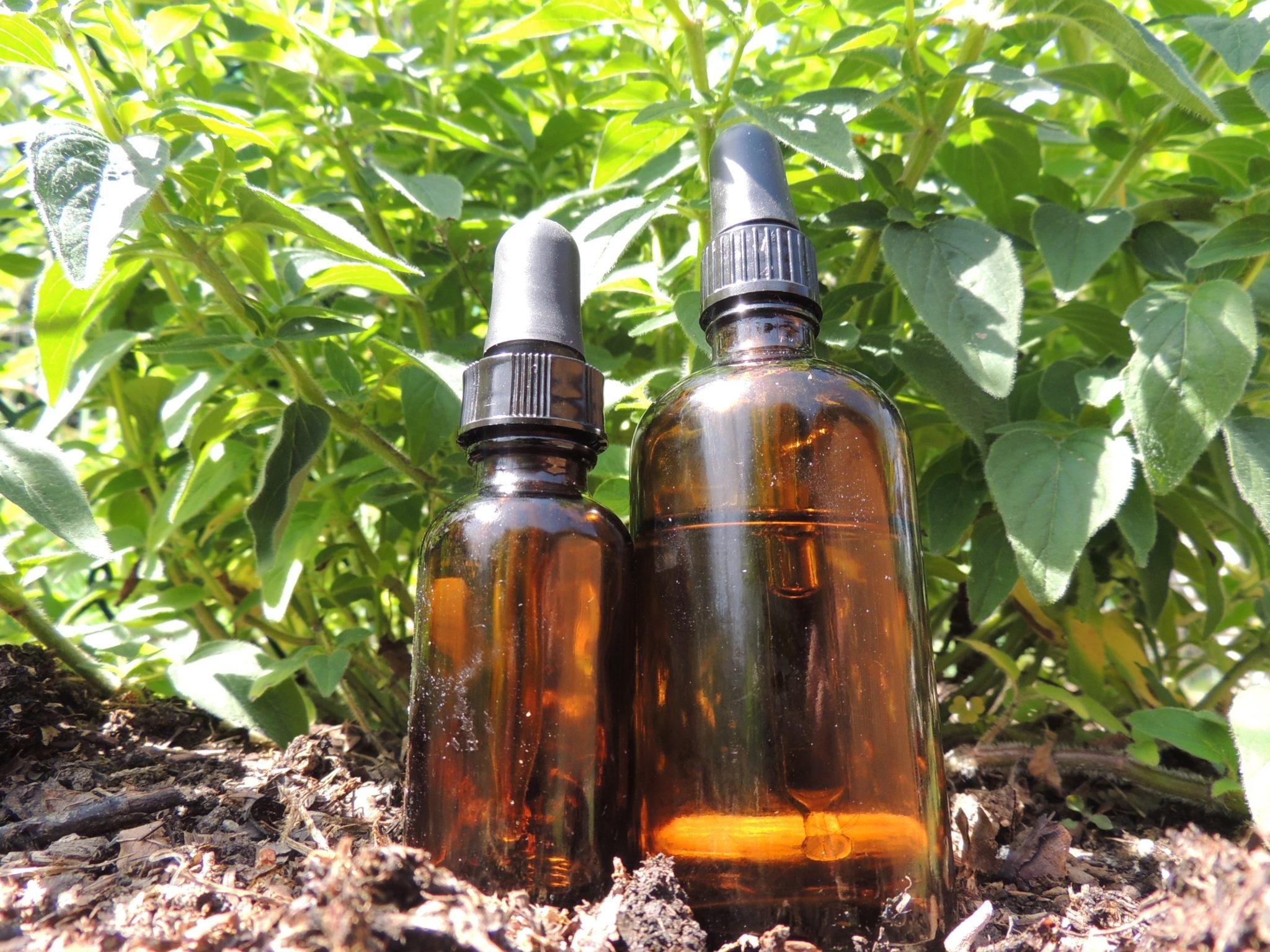 A tincture is a solution of herb constituents that are most commonly extracted using ethyl alcohol (e.g. 80-proof Vodka or Rum) as the solvent, although you can also use vegetable glycerin, or apple cider vinegar, too. Basically, it's herb-infused alcohol ( or glycerin or ACV.)80-proof ethyl alcohol (e.g. 40% vodka) is an ideal solvent because it contains both water and alcohol: the alcohol dissolves the alcohol-soluble constituents, and the water extracts the remaining water-soluble constituents, making full use of the herb.
A tincture is a solution of herb constituents that are most commonly extracted using ethyl alcohol (e.g. 80-proof Vodka or Rum) as the solvent, although you can also use vegetable glycerin, or apple cider vinegar, too. Basically, it's herb-infused alcohol ( or glycerin or ACV.)80-proof ethyl alcohol (e.g. 40% vodka) is an ideal solvent because it contains both water and alcohol: the alcohol dissolves the alcohol-soluble constituents, and the water extracts the remaining water-soluble constituents, making full use of the herb.
Why Make Tinctures?
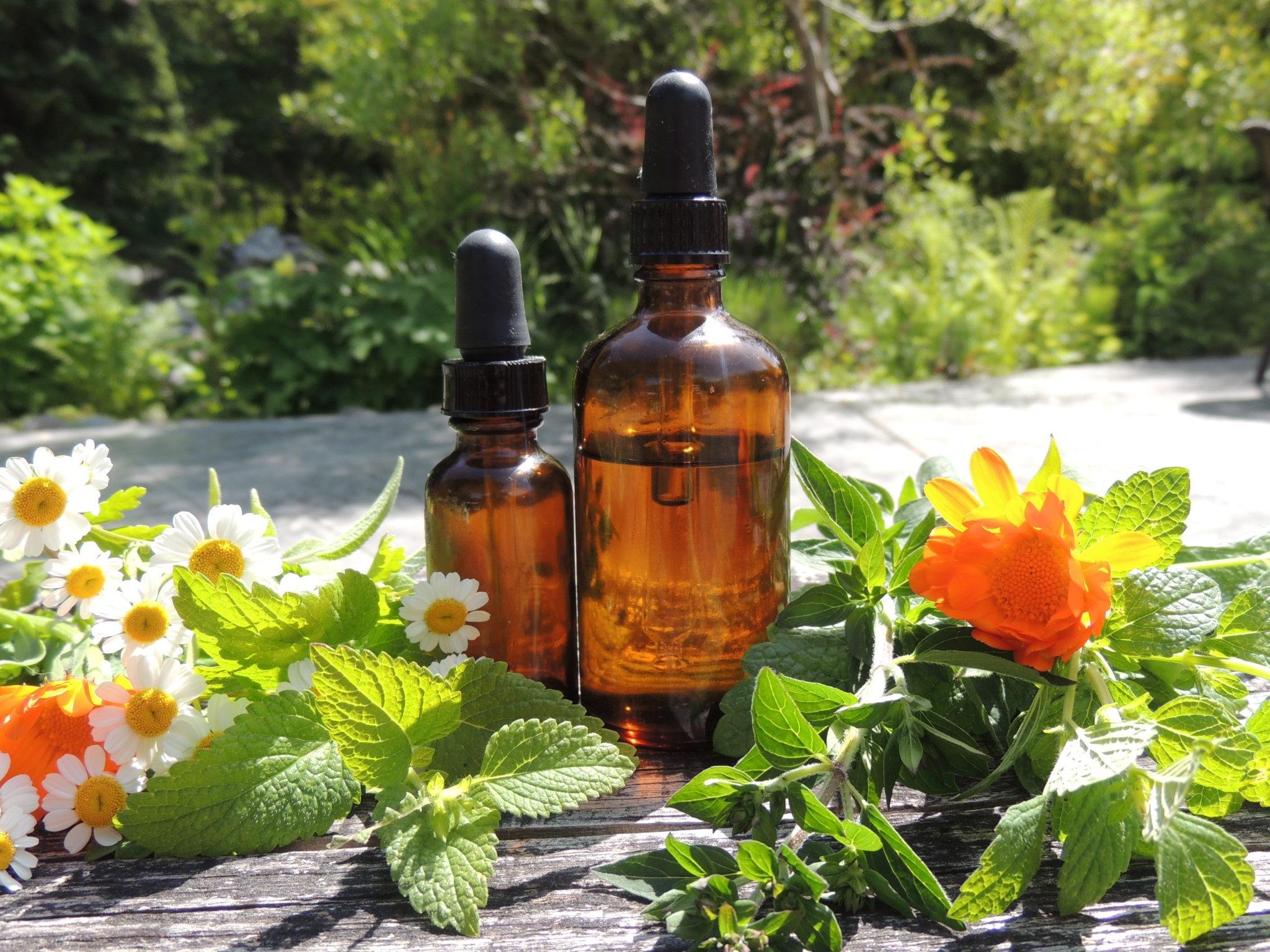 Before modern medicine, the leaves, stems, bark, flower and root of a plant, were the only medicine around, and used to treat everything from mild colds to disease. Today, a simple pill seems to suffice for most things, and people aren't afraid to pop one at the first sign of something as minor as a headache (when maybe all you needed was a glass of water).Don’t get me wrong, I’m incredibly grateful for modern medicine, and know when it’s necessary to visit the doctor (or emergency room), but I just don't feel it's necessary to pop a pill at the first sign of a cough. For minor ailments such as, for example, a mild cold, PMS, minor wounds and burns, sleep problems, anxiety, an upset stomach, or ear aches, I'd prefer to try a more natural approach first, using homemade tinctures and tea, and avoid anti-biotictics at all cost! I've worked too hard building a healthy gut flora (with the aid of fermented foods) to kill it all in one day with a pill!
Before modern medicine, the leaves, stems, bark, flower and root of a plant, were the only medicine around, and used to treat everything from mild colds to disease. Today, a simple pill seems to suffice for most things, and people aren't afraid to pop one at the first sign of something as minor as a headache (when maybe all you needed was a glass of water).Don’t get me wrong, I’m incredibly grateful for modern medicine, and know when it’s necessary to visit the doctor (or emergency room), but I just don't feel it's necessary to pop a pill at the first sign of a cough. For minor ailments such as, for example, a mild cold, PMS, minor wounds and burns, sleep problems, anxiety, an upset stomach, or ear aches, I'd prefer to try a more natural approach first, using homemade tinctures and tea, and avoid anti-biotictics at all cost! I've worked too hard building a healthy gut flora (with the aid of fermented foods) to kill it all in one day with a pill!
How to Make a Tincture
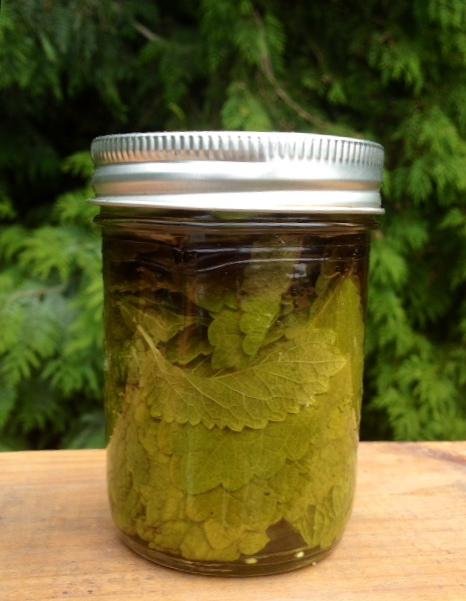
- You can make a tincture using either dried or fresh herbs.
- The herbs can be chopped, mashed, powdered or left whole.
- The herbs are then soaked in, most commonly, ethyl alcohol for 2 to 8 weeks.
- Once they've soaked, the herb is strained out, leaving a tincture!
- At this point, you may wish to make your tincture double-strength, by packing the strained alcohol, once again, with the herb, and leaving it for another 2-8 weeks.
To order your 30 ml tincture bottles, for 2 for $5, email me at carlymdaley@gmail.com. Or, purchase them locally, in Sechelt, B.C., at Flo's Body Piercing Studio (my Modern Hippie Mom's business), where I am now selling my products and some supplies.
How to Take a Tincture
A tincture can be used topically, or taken orally. Orally, the tincture is taken under the tongue for fast absorption.Squeeze the bulb and release it—that’s a droppersful. An adult dose is considered 2 droppersful, which is about 60 drops. (The amount of alcohol in an adult dose is equivalent to eating a ripe banana.)A child’s dose varies, and you can view a child’s dosage guide here.
Notes
- This information is based on my own research and reading--I always encourage you to do your own research too, and consult your doctor if you are planning on changing or going off any medication (read my disclaimer.)
- A tincture is considered safe for a pregnant women and children to take, as long as the herb is safe to eat during pregnancy--the amount of alcohol in an adult dose in equivalent to eating a ripe banana.
- Don't try to "play doctor" if there's a serious issue at hand. Homemade tinctures are only meant to treat very minor health problems.
- Obviously, tinctures should only made out of edible herbs! Make sure you are 10000% sure that you using the herb that you think you are using. Research, double-check, ask a gardener friend, then check again!
- Ensure that neither you, nor your children, have any allergies to the herb that you're using.
- To order your 30 ml tincture bottles, for $3.00/each, email me at carlymdaley@gmail.com. Or purchase them locally, on the Sunshine Coast, at Flo's Body Piercing Studio (my Modern Hippie Mom's business), where I am now selling my products.
Talk to you next Tuesday, for Week Two: Lemon Balm Tincture.
